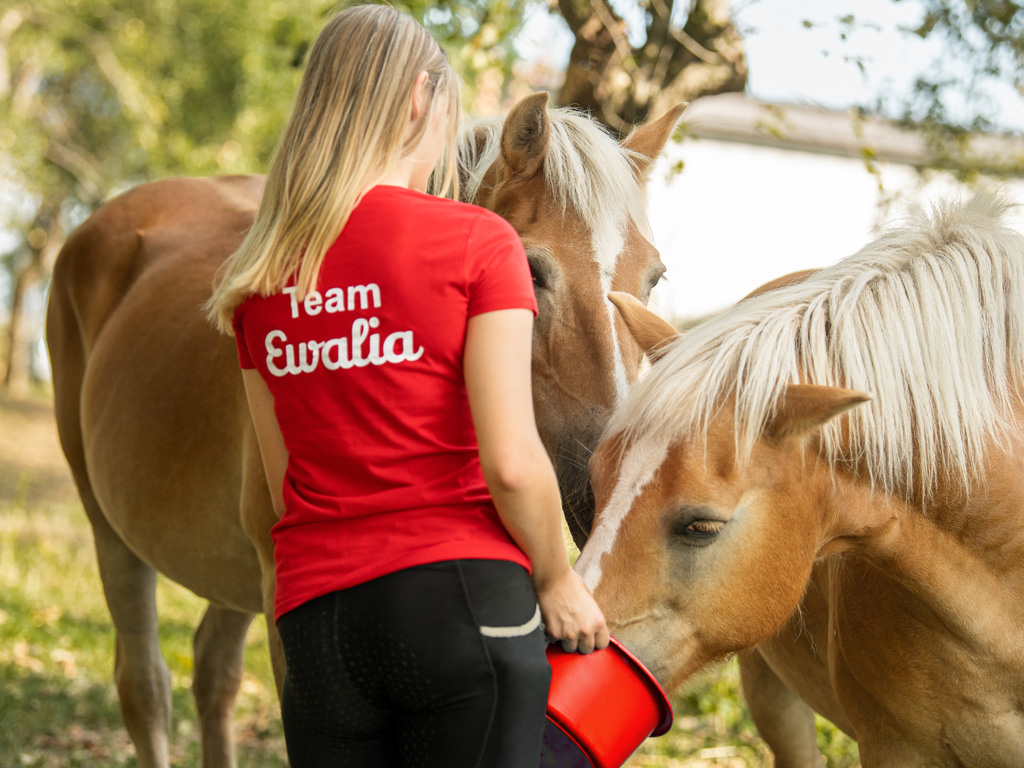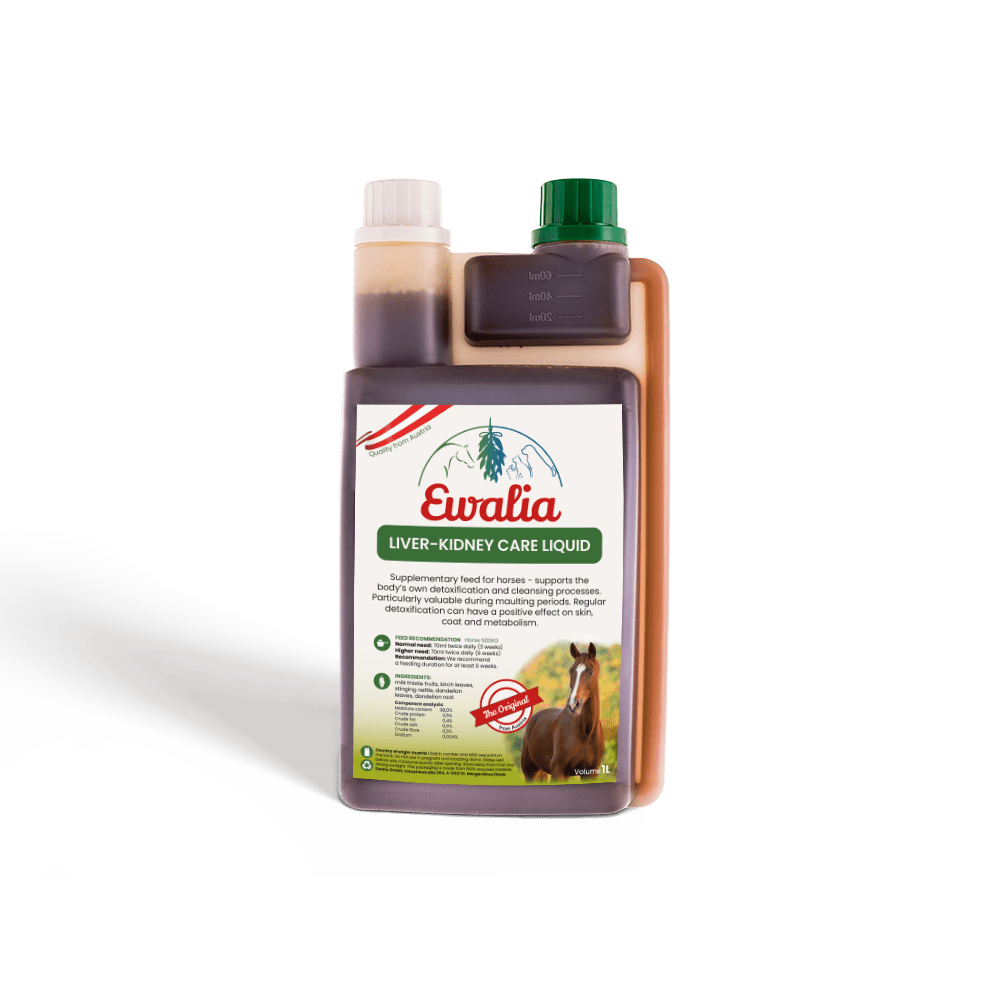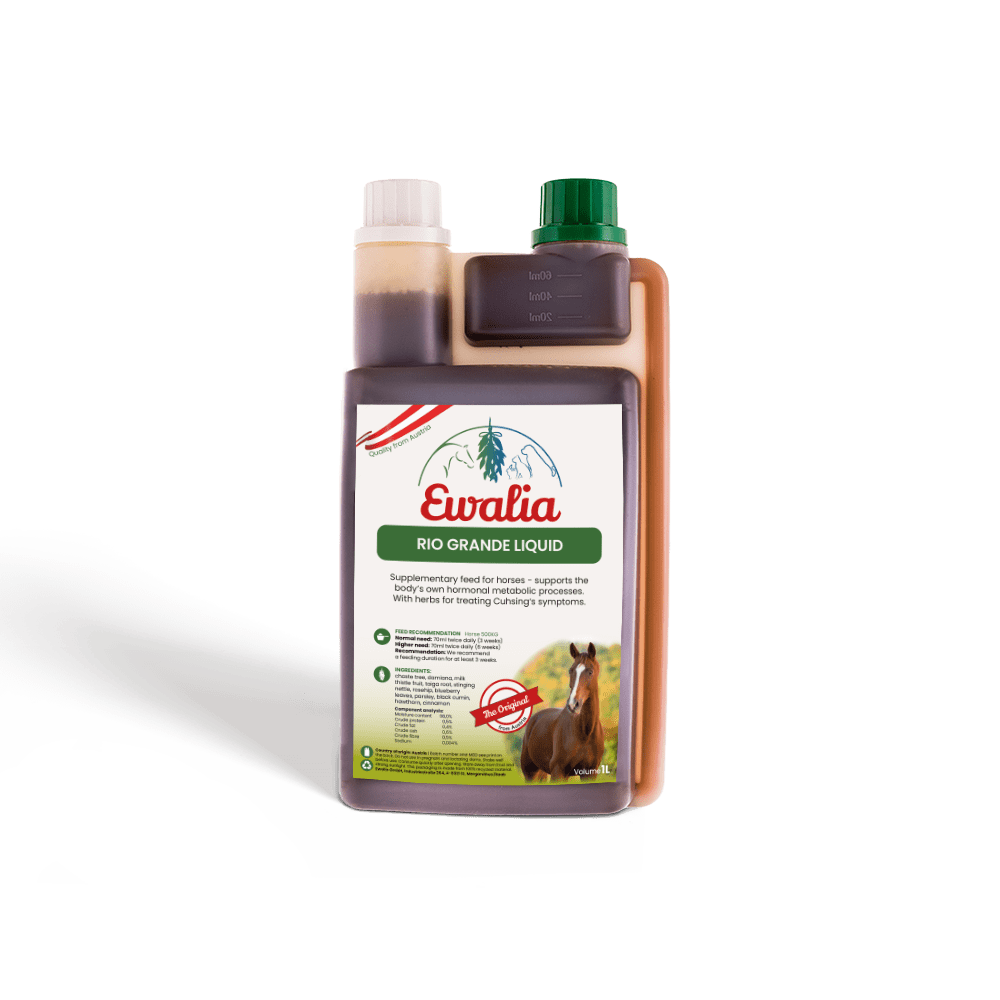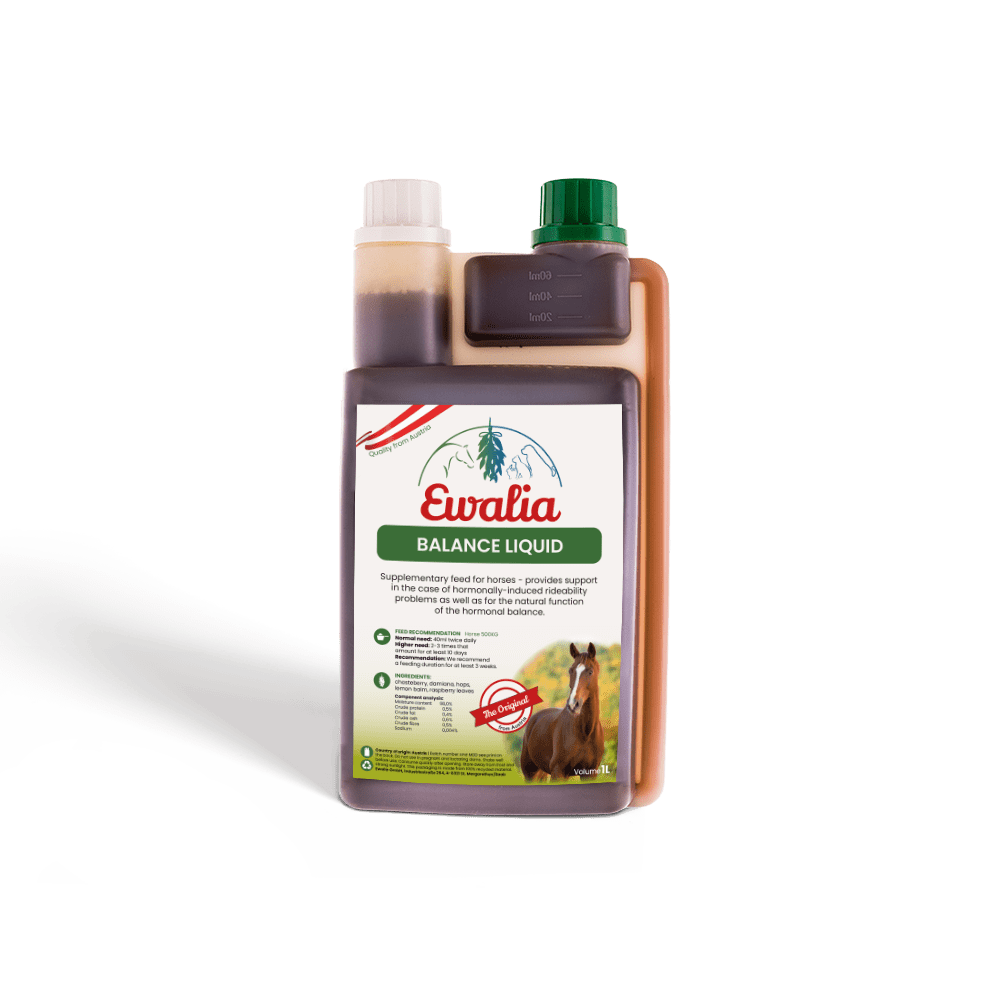Moving yard – a challenge for horses and owners
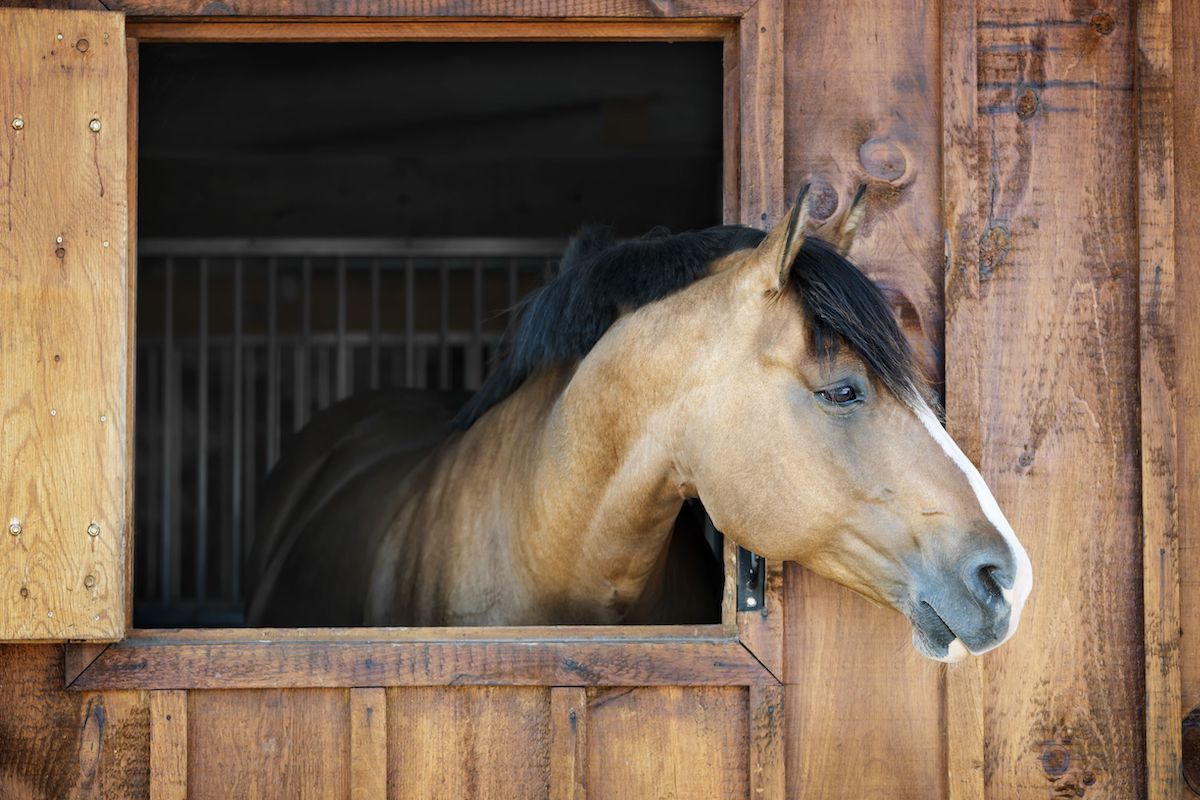
You've decided to move your horse to a new yard. Or maybe you've just bought a horse which will now be relocating to his new home. You're excited and looking forward to it, but keep in mind that moving causes stress in your horse. Read on to learn why horses have problems moving to new homes and how you can make the move easier for your horse.
Why does my horse behave differently at the new yard?
You've done a careful search: the boxes, paddocks, field shelters and pastures are clean and kept in perfect condition, and the feed is terrific. The horses are well cared for and look quite happy. The operator is nice and handles the horses with friendliness and professionalism. There's also a nice, bright indoor school and a sheltered manège with floodlights – as well as a cosy place where riders can socialise with one another after rides.
Or: You're looking forward to finally bringing your old Hafi and your two ponies home to you. After using a livery yard for several years, you are excited by the idea of keeping and looking after the horses yourself. The new open barn has a nice thick bedding, the fences are up, the paddock is secured, you've got plenty of hay and concentrate feed. You've invested much time, money and effort to give your darlings the best home in the world.
Just before moving day, you start to feel a bit apprehensive. There's one thing you failed to do, and that's to fully prepare your horse for the move, Luckily, everything goes well; after a few attempts the horse is persuaded to get in, and arrives sweaty but safe and sound and can move into his new home. Sure, he's a little tense, but he seems to like his new surroundings. Relieved, you can now exhale.
But a few days later, your horse is no longer himself. Old Reliable now runs over you when on the lead, breaks away when tied and no longer stands still during grooming. Your brilliant dressage star smells a bear in every corner of the arena, tenses his back and has forgotten everything he has ever learnt. Your hypersensitive princess no longer pays you any heed and displays stubborn, unruly behaviour.
Your Hafi, who's known to hoover everything down, shows no interest in the fragrant hay in his manger; instead, he stands in the very back of your beautiful open barn with a tucked-up belly and a pinched face. The newly installed water drinker is avoided as if it held sharks. Instead of grazing peacefully in the green meadow, your gentle pony bullies her old buddy in the paddock and evades capture.
The floodlit manège and the fantastic bridle paths behind your house go unused, because concentration is suddenly a foreign word. Instead, there's whinnying, wriggling, pushing, sticking, shying. You can't remember what a relaxed ride feels like. Maybe moving your horses wasn't such a good idea. What happened?
Why does moving yard cause stress for horses?
Unlike humans, horses are not big fans of change. They are creatures of habit, finding security in a familiar environment, a familiar herd, a daily routine. Some horses develop close friendships with other horses which last their whole lives. Even sport horses with experience in travel and unfamiliar situations need time to relax at home in familiar surroundings.
Moving yard is a major disruption to your horse's life. He's separated from his herd – if he's sold, then from his human as well. Left on his own, he is flooded with an abundance of new stimuli: unfamiliar mates and humans, strange surroundings, new sounds and smells, different feed ... these cause insecurity, anxiety, and fear. Moving often causes a horse to lose his best buddy and to suffer from the separation. The situation is aggravated by the fact that the horse is a flight animal which, enclosed in the barn or in the paddock, cannot simply run away. For the first few days he is usually kept apart and in a confined space for safety reasons, or is quarantined, during which he is allowed to see the other horses but not get to know them better. And don't underestimate the excitement of his familiar human, who in this new environment may behave differently towards the horse than he is used to. All this causes stress.
Stress in horses
The term stress involves the physical and psychological reaction of a horse to events in its environment. Stress in and of itself is not necessarily bad if the horse is able to adapt to the situation. Prolonged conflicts, social stress, discomfort and fear, however, will keep a horse on constant alert and affect its well-being. Horses in new yards often will not lie down at first out of insecurity, and the lack of sleep leads to additional stress. Prolonged stress can result in behavioural disorders such as stereotypies or unpredictable and explosive behaviours. But long-term stress can also lead to health problems: the immune system is weakened, and stress can be partly to blame for various diseases and their delayed healing. Stressed horses often suffer from muscle spasms and colics or may develop gastritis or gastric ulcers. Studies show that transport, moving yard and changes to the herd dynamics can be predisposing factors for equine gastric ulcers. Stress in horses is difficult to measure, but it is proven that horses eat less feed when they are under stressful, and this leads to increased acid concentration in the stomach. Reduced blood flow to the stomach wall also encourage the development of gastric ulcers.
How to recognise stress symptoms in your horse
How a horse reacts to stress depends on its genetic disposition, past experiences and its general individual qualities. Even experienced horse people don't always find it easy to understand a horse's emotions and correctly read a horse's stress signals. These can be quite subtle and almost imperceptible at first – nervousness, wrinkles over the eyes, twitching or blinking of the eyelids – but can increase with further stress to include fear, increased defecation and attempts to flee from frightening external stimuli. The horse's stress reactions can escalate and pose a danger to both himself and his rider. The horse's undesirable behaviour usually results in corrective intervention by the human who mistakenly believes that the horse is being "naughty", which does not make things any easier for the horse.
However, it is just as worrying when a horse initially seems calm or relaxed after prolonged stress, when in fact it has already shut down or withdrawn. The horse reacts to the overwhelming situation with frustration and depression, reducing its active behaviour.
The good news: Repeated experiences in a new stable lead to habituation and thus to a weakening of the horse's stress response. A horse can adapt very well to new situations, whereby learning behaviour also plays a major role.
How can I make moving easier for my horse?
Sometimes moving yard is necessary, either because of changes in your own life or because the horse's care – or "the chemistry" – is no longer right at the old yard. You can support your horse both physically and psychologically.
- Carry out health checks at the old yard: If possible, hoof care by the farrier and routine veterinary check-ups should take place whilst the horse is still in familiar surroundings. Plan ahead!
- Transport: Don't wait to practise loading on the big day. If you don't own your own trailer, you can surely borrow one for practice purposes and accustom your horse to getting in and out of the trailer. Only do the first, preferably short, practice ride with your horse after loading has become routine and the horse can relax when standing in the trailer.
- Switching feeds: If your horse will be getting a different concentrate feed at the new yard, start by mixing the new feed in with the old ration. Changing from hay to silage, from low-quality hay to very good hay, or from solely hay to pasture can be more problematic. Too-sudden changes between different types of roughage can cause digestive problems. In the beginning you can mix hay with silage; hay that is too high-protein can be mixed with straw. Gradual feed changes can help prevent problems like diarrhoea or watery stool.
Mash is also a trusted type of feed that ensures stable digestive function. With mash you can prevent your horse from losing weight from stress – even poor doers will gladly eat a warm mash! The essential fatty acids in linseeds help support your horse's immune system.
As a preventive measure, give your horse herbs that protect the stomach lining to prevent an upset stomach from the move. The mucilaginous substances in marsh-mallow relieve inflammation in the gastro-intestinal tract, whilst liquorice root helps relieve symptoms from excess acid. Camomile has anti-inflammatory and calming effects, whilst fennel and peppermint have antispasmodic effects. - Nutrients for your horse's nerves: Magnesium supports the equine organism in times of stress. Since your horse's need for vitamin B increases during stress, you can increase the supply with brewer's yeast or vitamin B complex preparations. Feeds containing vitamin E, for example linseed oil, help to relax equine muscles.
- Boost the immune system: The new environment not only causes stress for the horse, it also challenges the horse's immune system with new microbial strains. You can boost your horse's natural defences with the vitamin C in rose hips and the effects of echinacea and grape seed extracts.
- Meet the new herd: If you want to spare your horse from being bullied or chased and the associated injuries, first put him alone in a paddock next to his new companions so that the horses can see each other and, ideally, get acquainted. Your horse must have enough space to be able to move out of the way at any time! Once the initial excitement has passed, the horses can be placed with the newcomer one by one, starting with the friendliest horse. However, make sure that there are no corners of the paddock that your horse could be pinned into.
If your horse is moving into an open barn, watch in the beginning to see if he is being kept from food or water. Better to hang up another hay net than to risk a fight! Many open barns have strip curtains, so get your horse used to them as soon as possible. There are many horses that either are afraid to go through the curtain and will stay out in the rain, or else "take a deep breath and go" and rush through with no regard for who or what is on the other side! - New humans: If your horse has any "special talents" like opening doors, or fear of certain objects (brooms, pitchforks, etc.), make sure all the people who will be working with or near your horse at the new yard know this. This knowledge will help prevent negative experiences for all.
- Time: Give your horse ample time to get assimilated. Whether this takes weeks, months or even a year depends on the horse, its experiences and the surrounding circumstances in the new yard. Moving yard can be especially hard for older horses. Be patient – the horse needs time to get to know and feel safe with the new group, new humans and new environment.
- Understanding: Keep yourself busy with your horse without overwhelming it in its new situation or exerting pressure. Peaceful walks, exploring the new surroundings together and extensive grooming are positive experiences for both of you and promote mutual trust.
- Look ahead: Avoid letting situations escalate. If you already know that your horse has problems with clattering machines, you don't have to lead him past a running tractor right now. Try to project calm and be exceptionally generous with treats – chewing helps to relax.
- Training: Pull back on your training goals for a time. Your horse will have trouble concentrating after moving to his new home. Once in the new surroundings, it's better to set difficult exercises aside for simple ones that your horse can do well and for which you are sure to offer praise.
- Timely, targeted support through herbs: If you're planning a move, increase your horse's stress tolerance with proven herbs. Hops are effective against anxiety and promote digestion. Valerian, lavender and balm will help relieve tension, restlessness, sleep problems and nerves – and can also come in handy for other special events like visits from the farrier or vet, or for New Year's Eve.
Caution: Valerian, in particular, is slow to take effect, so start feeding it to your horse early!
Sources and further reading
- Bell, C., Rogers, S., Taylor, J., & Busby, D. (11. Dezember 2019). Improving the Recognition of Equine Affective States. Von animals: https://doi.org/10.3390/ani9121124 abgerufen
- Magengeschwüre Pferde. (2020). Von https://www.magengeschwuere-pferd.de/ abgerufen












